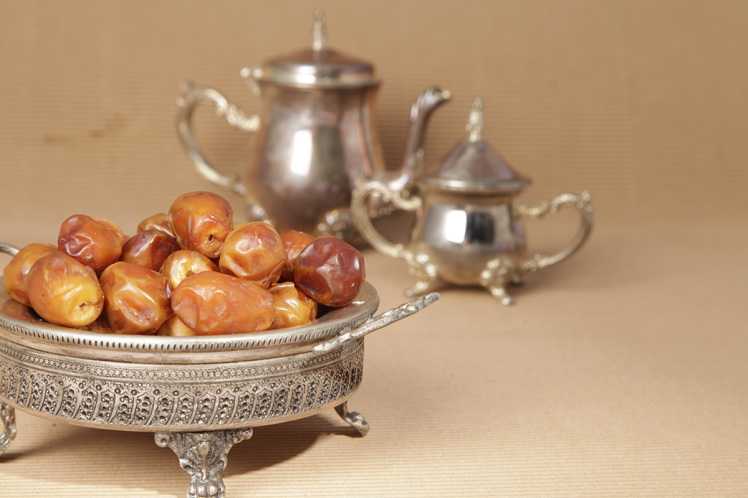Dates, also known as Buah Kurma in Indonesian and Malay, are more than just a delicious treat in Indonesian and Malay cultures. They hold a deep significance, revered for their symbolism and believed to offer a multitude of health benefits.
A Cultural Cornerstone
For centuries, dates have been woven into the fabric of Indonesian and Malay cultures. Their presence is particularly prominent during the holy month of Ramadan. Muslims traditionally break their fast each evening with dates, following the practice of Prophet Muhammad (PBUH). This custom, known as Iftar, signifies the importance of dates and their connection to faith and tradition.
Beyond Ramadan, dates are enjoyed throughout the year as a source of sustenance and a symbol of hospitality. They are often offered to guests as a gesture of welcome and appreciation, reflecting the warm and welcoming nature of Indonesian and Malay societies.
A Treasure Trove of Health Benefits
Traditionally, dates have been viewed as a natural source of health and well-being in Indonesian and Malay cultures. This perception is supported by modern scientific research that highlights the rich nutritional profile of these fruits.
Natural Sweetness
Dates are a natural source of fructose and glucose, providing readily available energy. This makes them a perfect pick-me-up during a long day or after a workout.
Dietary Fiber Powerhouse
Dates are packed with dietary fiber, which is essential for digestive health. Fiber promotes regularity and can help manage blood sugar levels.
Essential Vitamins and Minerals
Dates are a treasure trove of essential vitamins and minerals, including potassium, magnesium, calcium, and iron. These micronutrients play a vital role in maintaining overall health and well-being.
Potential Benefits for Heart Health
Some studies suggest that dates may help promote heart health due to their presence of potassium and fiber. These nutrients can help regulate blood pressure and cholesterol levels.
Energy Booster During Pregnancy
Traditionally, dates have been consumed by pregnant women in Indonesia and Malaysia as a source of natural energy. Dates are rich in iron, which is essential for both mother and baby during pregnancy.
Beyond Tradition: Modern Applications of Dates
The health benefits of dates are not limited to traditional practices. Today, dates are being explored for their potential applications in various health and wellness regimes.
A Natural Sweetener
Due to their natural sweetness, dates can be a healthy substitute for refined sugar in various recipes. This can be beneficial for those looking to manage their sugar intake.
A Pre-Workout Snack
The readily available energy from dates makes them a great pre-workout snack. They provide a natural energy boost without the crash associated with sugary snacks.
A Post-Workout Recovery Aid
The presence of electrolytes in dates makes them a valuable post-workout recovery aid. They can help replenish electrolytes lost through sweat and promote muscle recovery.
Conclusion:
Buah Kurma, or dates, hold a special place in Indonesian and Malay cultures. They are not just delicious fruits but also symbols of faith, hospitality, and well-being. Their rich history and perceived health benefits continue to make them a popular choice for people across these regions.
Key Highlights:
Dates (Buah Kurma) are culturally significant in Indonesia and Malaysia, especially during Ramadan.
Dates are traditionally viewed as a source of health and well-being.
Dates are rich in nutrients like fiber, vitamins, and minerals, offering potential health benefits.
Dates can be enjoyed in various ways, from a natural sweetener to a pre-workout snack.
The cultural and health significance of dates ensures its lasting presence in Indonesian and Malay traditions.

Leave a Reply